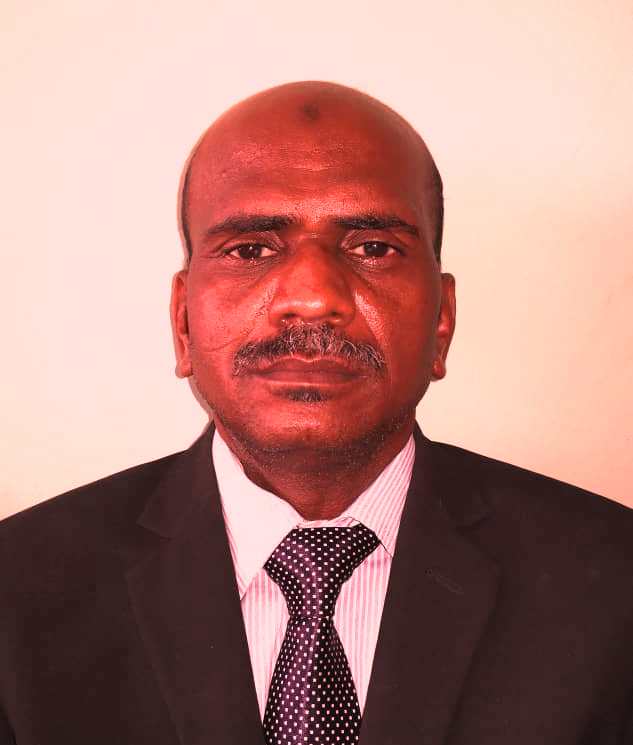By Dr. Abasher Elhaj
While tracking the “Economic Conference” being held shortly, it dawned to me that there has long been a sense of deterioration in terms of the common language used by the so called “experts and scholars”. I groped that the current technical linguistic aptitude of those who delivered their speech may be a bit skewed. I strongly believe the first to zero of any specific discipline linguistic aptitude is mastering of the primal source of conference. As I am not affiliated to any economic or business ambit, I would like to trace a persistent connection between linguistic fragmentation and economic development.
Conferences are often a researcher’s foray into perusing much before delivering a pompous and impromptu speech in any given academic arena. Delivering speech in a conference has plethora dimensions, unlike traditional talk in an informal setting, such as the “Cup of Tea Forum”, due to quick turnaround, oral presentation, immediate feedback, and the opportunity for networking.
Presenting paper in a conference often falls into three categories: business, academic, and consulting. Each category has its own linguistic register; however, they all have something in common, which is “Branding”. Since business falls under the umbrella of economy, I have not witnessed a speaker in that conference used a proper and technical language to brand himself or herself as a subject matter expert by selecting the appropriate topic to share with the participants; he supposed to be expert and specialized in that topic. The conference held in the Friendship Hall was for only economic experts, and no room for the publics to attend; instead, they are waiting its “Godot” to come. What made it more disappointing, was to hear a participant asking to equalize the punishment of Rape Crime in Darfur with the rest of Sudan regions. What a maniac irrelevance!
Being shallow and inadequate in academic language and etiquette not only smolders the expectations of the publics, but also diminishes creditability. From the presentation skills and the linguistic behavior of the conference, one can infer that the conference lacks pre-peer-reviewing which is clearly twigged in a university professor delivering a long speech of incoherent economic and business jargon. I guess to peer-review in advance, gives the speaker the opportunity to incorporate constructive comments into his first draft because a presented peer- reviewed speech is a subsidiary appropriateness to extradite feedback on his/her written speech from expert from the field. Exemplarily, one to three knowledgeable reviewers in the subject matter read and critique their paper.
Most participants of the economic conference, inside the hall or tracking its acts outside the venue, were thinking of two thoughts: changing these miserable conditions we are struggling, and dreaming of getting promoted. However, the language used to convey these fundamental thoughts to the audience was so casual and formulated unquantifiable progress on this conference, and depleted our scarce budget.
The interplay between language and economic activities is likely to be connected with development. The internal communication practices of Sudanese economic crisis more or less successfully depending on the language in which the internal communication took place because literacy encourages a sense of empowerment on the part of recipients. Moreover, the language that grammatically associates the future and the present, boosts future-oriented behavior. This assumption arises naturally when well-documented effects of language structure are consolidated into economic recommendation of intertemporal recipe for capita to devour.
By the end of this vignette, the salient lineament of this conference was the linguistic fragmentation. However, people have bemoaned the unintelligibility of formal documents presented in formal setting to make them clearer. This resort has been referred to as a movement of the “Plain Language Movement”. One can excuse those who used a low standard language during the events of the conference if they were aware of this language; otherwise the insidious epoch of Islamist succeeded in shaping our nature to make us poor in all aspects of life by wanting only necessities.
In sum, regardless of the economic benefits obtained from the conference held, since it is not me to comment, it disclosed a number of abstract merits, such as cobbling the way for people to speak out grittily by breaking the trepidation barriers and gagging policy applied to us by the ex-regime. Another favor, it pinpointed that we are still in badly need to rearrange our academia particularities in terms of academic titles, such as “professor, expert, and the like” because without their opinion there is no such a thing as certainty.
hajabasher@gmail.com
https://khartoum-today.net/
 Sudan army chief Al Burhan freezes bank accounts of paramilitary RSF
Sudan army chief Al Burhan freezes bank accounts of paramilitary RSF Sudan’s SAF & RSF sign agreement intended to lay groundwork for humanitarian assistance
Sudan’s SAF & RSF sign agreement intended to lay groundwork for humanitarian assistance SAF, RSF agree on extension truce for the sixth time
SAF, RSF agree on extension truce for the sixth time Army, RSF agree to extend truce for 72 hours
Army, RSF agree to extend truce for 72 hours Sudanese people fled to Egypt amid acut humanitarian crisis
Sudanese people fled to Egypt amid acut humanitarian crisis THE ELEPHANT IN THE ROOM
THE ELEPHANT IN THE ROOM Death toll from Sudan fighting tops 180 as clashes in Khartoum enter fourth day
Death toll from Sudan fighting tops 180 as clashes in Khartoum enter fourth day By the UN Secretary-General Op-ed on G20 – 8 billion
By the UN Secretary-General Op-ed on G20 – 8 billion A strong military key to maintaining world peace
A strong military key to maintaining world peace Beautiful China shows new chapter of ecological conservation
Beautiful China shows new chapter of ecological conservation

OH, NO! EXPERTS, YOU MISS THE GIFT OF THE GAB
About the author
Related Articles
2020 All rights reserved khartoum-today.net 0124293222






